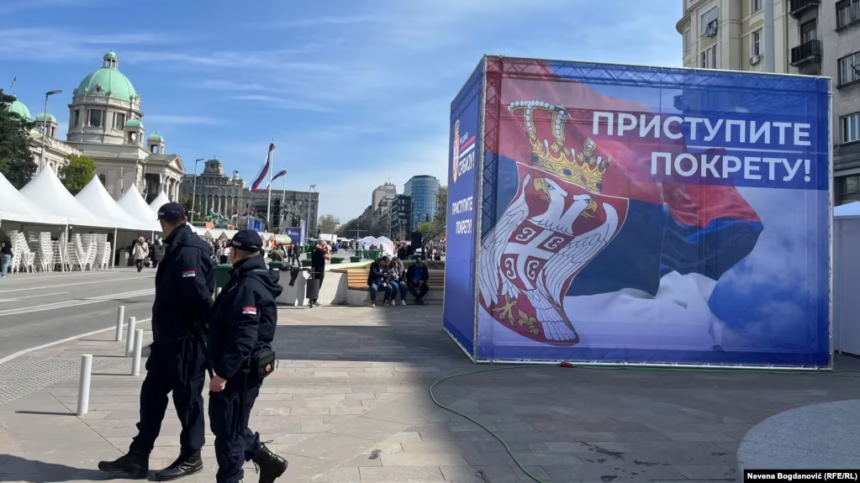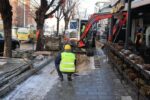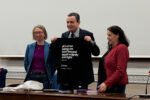The center of Belgrade was closed to traffic on April 11 ahead of a pro-government rally titled “We Won’t Give Up Serbia”, organized by Serbian President Aleksandar Vučić.
King Alexander Boulevard and Nikola Pašić Square were completely shut down to vehicles, though pedestrian access remained open. Police units secured the area, and several booths were set up where citizens could write letters to the president and join the newly formed “Movement for the People and the State”, according to Radio Free Europe.
Vučić had called citizens to gather from April 11 to 13 under the banner of this new movement, which he has mentioned repeatedly in recent months. Besides citizens, he also invited political parties and other movements to participate.
The gathering comes amid months of mass student-led protests. Students have been blocking state universities, demanding accountability from the government after 16 people died in a tragic accident at the Novi Sad Railway Station in November 2024.
Vučić announced he would present demands at the rally “in line with the Constitution” and reflective of the “will of responsible people and the majority in Serbia.” Miloš Vučević, President of the Serbian Progressive Party (SNS) and acting Prime Minister, stated that one of the key demands will be to “unblock the country” from ongoing protests.
Some groups of Vučić’s supporters walked to Belgrade in support, including groups from Novi Sad and Kosovo. They say their aim is to back both the president and students opposing the university blockades, advocating a return to classes.
Students who are against the blockades have set up a camp near Pioneers Park, close to the Serbian Presidency building. The area was again surrounded by tractors, a measure previously used during protests in March.
These students deny allegations that they were organized by authorities or the SNS.
Meanwhile, students leading the blockade have been protesting for over four months, drawing hundreds of thousands of people to the streets nationwide. Their demands for political and criminal responsibility for the Novi Sad tragedy have gained the backing of university professors, teachers, farmers, lawyers, and actors.
The demonstrations have become a symbol of wider dissatisfaction with the rule of law in Serbia, with many questioning whether systemic negligence and corruption contributed to the disaster.







